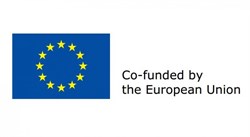

On 1 March, Republikon Institute and the Czech think-tank Centre for Economic and Market Analyses (CETA) organized a joint online debate based on a research paper by the latter. The conference touched upon economic relations between the Visegrad countries – the Czech Republic, Poland, Hungary, and Slovakia – and the European Union. The occasion was given by the European Union's requirements on strategic autonomy, which is today perceived mainly through sanctions against Russia. The hasty pressure on the autonomy, according to the Centre’s paper, could pose a potential risk to V4 countries, which are vulnerable to limiting of international trade due to their open economy.
After some short introductory remarks by Dániel Mikecz, senior researcher at Republikon Institute and chair of the debate, Ales Rod, director of research from the Centre for Economic and Market Analyses, presented the results of their study as one of the authors behind it. According to him, the V4 economies are the most vulnerable to measures taken to reduce the EU's international trade dependence, which could imply higher costs for them. These results could prove particularly important at a time when the European Commission is implementing and proposing similar steps in the name of strategic autonomy.
In their analysis, they have drawn up a ranking of EU Member States according to the exposure of their economies to international trade, for example in terms of GDP per capita, Human Development Index, corporate tax rate, economic openness and FDI rates. In this ranking, Slovakia comes last out of 22 countries, Hungary 19th, Poland 16th and the Czech Republic 13th. Establishing members of the EU, in opposite, are at highest places of the ranking.
Reacting to the results of the analysis, Máté Hajba, President of the Free Market Foundation, said that he believed that a distinction should be made between the morally justified sanctions against Russia following its attack on Ukraine and the protectionist tendencies in US trade policy, which he sees as a bigger threat to the European Union. As he pointed out, the V4 countries are also more exposed to international trade because their open economies, which are based on attracting foreign investors, are combined with strong state involvement, subsidies, and corruption, which also harms free competition and further undermines the competitiveness of the V4 countries in the global context.
According to Ales Rod, their analysis is not meant to call into question the EU countries’ policy towards Ukraine, but to raise awareness so that there are no unexpected costs and so that countries can prepare for changes brought about by the curtailment of international trade. Impact of policies limiting international trade are not homogeneous – it negatively drop on less wealthy, more open economies without strong national providers, for example in ICT services. In conclusion, they agreed that it would be extremely beneficial to find a balance between strategic autonomy and competitiveness. It would be essential for V4 countries to be able to cope with unintended economic phenomena like infant industry protection, rent seeking, or the unavailability of best and safe technologies, especially indispensable for boosting digitalization in V4 countries. The study, which is going to be distributed to chosen decision-makers directly, is available in English here.

Co-founded by the European Union.